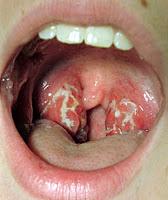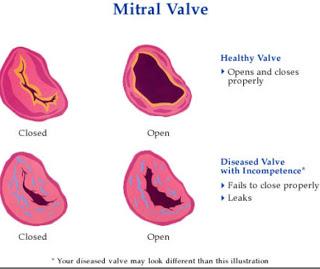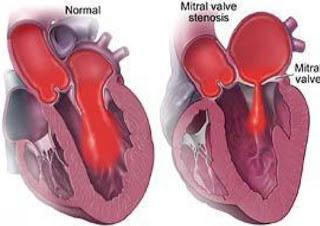Abscess in the tonsils
Strep throat and its causesA sore throat is a symptom of a myriad of underlying ailments. One such ailment could be the ‘Strep throat disease’. Streptococcal pharyngitis is the medical term for strep throat. It is a contagious infection of the pharynx and the tonsils caused by the Streptococcus pyogenes bacteria. The chances of getting a strep throat are higher during fall and spring. Children and teens between 5 to 15 years of age fall in the higher risk category. However, adults too may get a strep throat only that it is not as prevalent among them as it is among children.
The symptoms are severe in children and teens, while comparatively mild in adults. A person may develop symptoms of strep throat within 1 to 5 days after contracting the infection. Symptoms of strep throat are very similar to those of viral sore throat. However, symptoms suggestive of viral sore throat like cough and stuffy nose are absent.Symptoms include sore and swollen throat, redness and accumulation of exudate in the tonsils, swollen lymph nodes and fever. Associated symptoms like headache, nausea, loss of appetite, rashes on the skin may be exhibited. Swallowing, breathing and speaking become painful due to sore and swollen throat. Children generally complain of pain in the lower abdomen.Strep throat disease in infants is very rare. If at all they have strep throat, they exhibit symptoms like mild fever, nasal discharge and irritability.
It is advisable to undergo lab tests for definitive diagnosis of strep throat. Clinical diagnosis may be inaccurate since most of the symptoms of strep throat are similar to those of viral sore throat.Lab tests like ‘rapid antigen detection test’ are quick and easy to perform. A swab from the throat and tonsils is tested in the lab for infection. Results of this test are available within a matter of minutes. Positive results confirm strep throat. However, a negative result does not necessarily mean absence of Streptococcus bacteria; considering the accuracy rate of rapid antigen detection test being 70% to 80%. It is advisable to perform throat culture test when the rapid antigen detection test fails to detect the bacteria. The swab from the throat and tonsils are sent to the lab to grow a culture under controlled conditions. The streptococcal bacteria if present grow rapidly and the test results are positive confirming strep throat.
The course of treatment depends upon the severity of infection. Minor sore throat and fever can be treated with OTC drugs like acetaminophen and ibuprofen. Gargling with warm water helps soothe the sore throat. Sipping on herbal tea and warm soups will keep the patient hydrated. Antibiotics like penicillin, amoxicillin, cephalosporin, or macrolides are prescribed to help contain the infection at the earliest. It is advisable not to discontinue medication prematurely. It may lead to complications arising out of incomplete treatment and development of antibiotic resistant bacteria. One such complication is rheumatic heart disease.
Let us now proceed to discuss how strep throat if misjudged as an ordinary throat infection or left untreated can cause harm to your heart.Inadequate treatment of strep infection results into introduction of bacteria into the blood stream which leads to development of rheumatic fever. Rheumatic fever causes the antibodies from immune system to erringly inflict the joints, kidneys, skin, brain and heart. All the tissues except those from heart, may steadily recover from the injury. This results into permanent damage to the valves of the heart, called as rheumatic heart disease.
Add caption
Image courtesy- www.dokterpenulis.com
- Clinical signs of rheumatic heart disease
There are four valves in our heart, viz., mitral, tricuspid, aortic and pulmonary. Damage to the mitral or aortic valve is the major sign. Scarring of valves causes them to become hard and narrow or relaxed, resulting into improper flow of blood throughout the chambers of the heart. This leads to back-flow of blood into the chamber that it exited. To make up for the poor pumping of blood, the heart muscles swell and indurate, trying to pump harder.
The blood may accumulate there in the chambers and clot causing pulmonary embolism or congestive heart failure.Children between 5 to 15 years of age are at a higher risk of getting a rheumatic heart disease, since they are the one who are at a higher risk of getting strep infection. However, adults are also at the risk of developing rheumatic heart ailment if they choose to overlook the strep infection.
Treatment of rheumatic heart disease is strenuous, expensive and time consuming. If the damage to the valve is severe, undergoing surgery for repair or replacement of the valve is the only option left to avoid any further damages to the heart. Strong doses of penicillin or equivalent antibiotic may be administered for weeks to avoid recurrence of rheumatic fever.
- Prevention is better than cure
Preventing rheumatic heart disease is easier than suffering from it and being treated for it. The best preventive measure is to avail timely treatment for strep throat and to complete the course of medication prescribed by your doctor. Awareness among the people plays a very important role in preventing the occurrence of such medical conditions.So this is all about strep throat and the major complication it might create when misjudged or overlooked.
Note- The contents of this site (texts, images, and other material contained) are for informational purposes only. The Content is not intended to be a substitute for professional medical advice, diagnosis, or treatment. Always seek the advice of your physician regarding a medical condition you may have. Do not disregard professional medical advice or delay in seeking it because of something you have read on this site.




